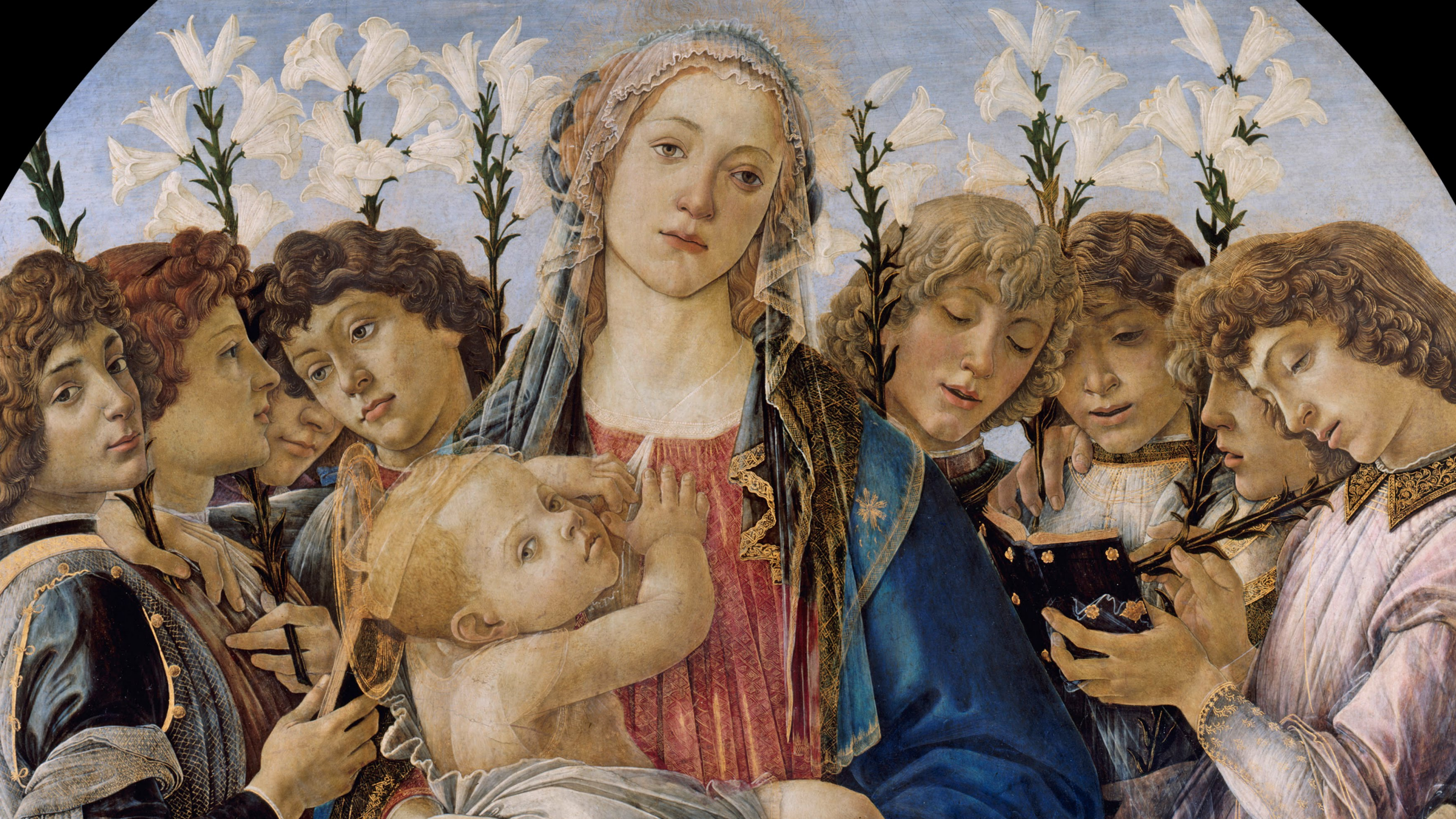There is an age-old question of debate within Christianity: “If mankind hadn’t sinned, would Christ have become man?” For St. Maximus the Confessor, this question is a resounding yes. In fact, Maximus posits that the purpose of the entire creation was for the incarnation of Christ, stating that the mystery of the incarnation is, “the blessed end for which all things are ordained . . . the preconceived goal for which everything exists,” and “It is the mystery which circumscribes all the ages, and which reveals the grand plan of God, a super-infinite plan infinitely pre-existing the ages.”
St. Maximus affirms that Christ would have become embodied without mankind’s fall from grace, since the incarnation was God’s “preconceived goal” that pre-existed the creation. “For the Word of God wills always and in all things to accomplish the mystery of his embodiment.” We can see this train of thought in some of the Pauline epistles, especially in the first chapter of Ephesians. Paul writes that God chose us to be in Christ before the foundation of the world, and God made known to us the mystery of his will, which is to unite all things in himself (Eph. 1:4-10).
Therefore, the incarnation is not a reaction to the transgression of mankind. In fact, Maximus sees the fall and reconciliation of man as a smaller arch in the larger story of God’s plan. That plan which “pre-existed the ages” is the movement of the Creator wishing to unite his creation with himself. He wishes to share his divine life, and the way that he does this is to be hypostatically united to man.
In fact, Christ’s hypostatic union unites himself to the whole of creation because man—the capstone of creation—is a microcosm of the entire universe. Unlike the rest of creation, mankind encapsulates both created worlds within itself. In man exists the material and immaterial; the visible and invisible. As St. Maximus says, mankind is both a heavenly being and an earthly one, “though weak in comparison with other animals, on the earth, like an angel he was able to worship God, with the senses as well as the intellect.”
Christ’s incarnation grants mankind the dignity of becoming agents of salvation for the whole world.
Therefore, man is, in the words of St. Maximus, “a kind of second cosmos.” Consequently, Christ’s embodiment is not only deifying human nature, but also, “displaying the grace of God affective to deify the universe.” In other words, Christ’s incarnation grants mankind the dignity of becoming agents of salvation for the whole world. Thus, creation is saved by man, and man is saved by the Cosmic Man, Christ.
Furthermore, St. Maximus is always clear that Christ retained the immutability that is proper to God when assuming human nature: “The plan was for him to mingle, without change on his part, by true hypostatic union, to unite human nature to himself while remaining immutable.” Consequently, this engenders a train of thought that has been infamous throughout Church history among theologians; namely, that Christ always had a human nature, and only about two-thousand years ago, manifested it to the human consciousness.
This is explicative of why the Old Testament prophets, when having visions of God, would see him having human features even though the incarnation hadn’t taken place within the reality of space and time. This is mysterious but easily agreeable when Christ is above space and time, and every moment of past, present, and future is held within the “now” for God. It also makes sense of why the devil hates man. Remember, according to many Patristics, the devil fell because of envy. The serpent was not envious of God. Rather, Satan was envious of mankind. In fact, Satan’s envy for man is even upheld in the Islamic tradition.
In the Qur’an, the devil is cast out of heaven because he refuses to prostrate himself before Adam (The Qur’an, 2:34). This is curious because the envy displayed by the devil can only logically make sense within a Christian scope or standpoint; a scope that elevates man to such a dignity as the incarnation does for mankind, “man is made god by divinization, and God is made man by hominization,” as St. Maximus points out. Satan is precisely jealous of man’s destiny in Christ, which is to become a sharer in Christ’s cosmic reconciliation.
This is the mysterious will of God that was hidden from the beginning of the ages: namely, that all created things, the logoi, which come forth from the Logos, be brought into union with him, thus sharing in the divine life of God.
“All the radii of a circle are brought together in the unity of the center which contains all straight lines brought together within itself. These are linked one to another because of this single point of origin and they are completely unified at this center. As they move a little away from it they are differentiated a little, and as they fall farther they are farther differentiated. That is, the closer they are to the centerpoint, the more they are at one with it and at one with each other . . . ”
St. Maximus the Confessor
This piece was originally published on December 27, 2022 on Evangelization & Culture Online.
